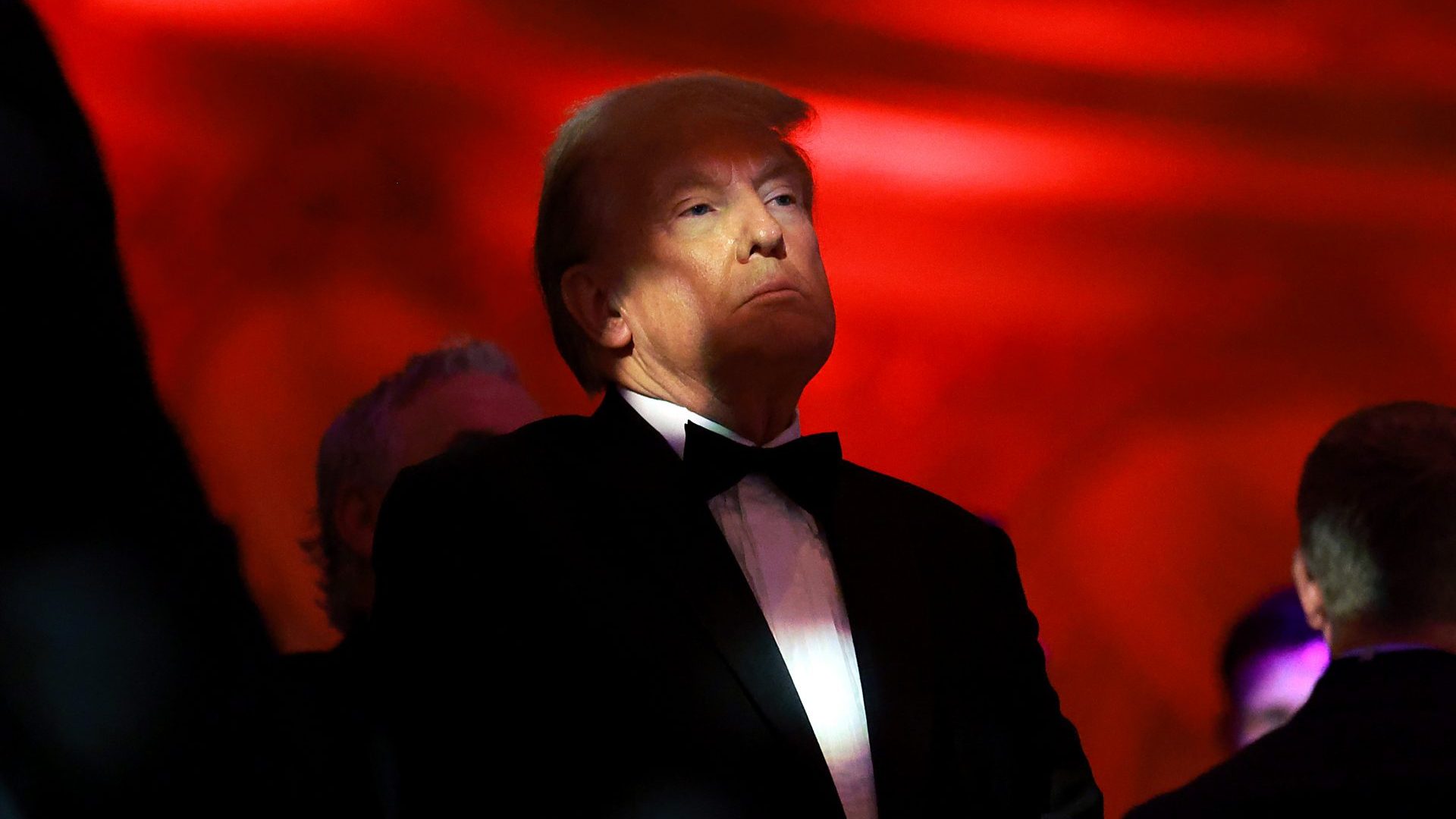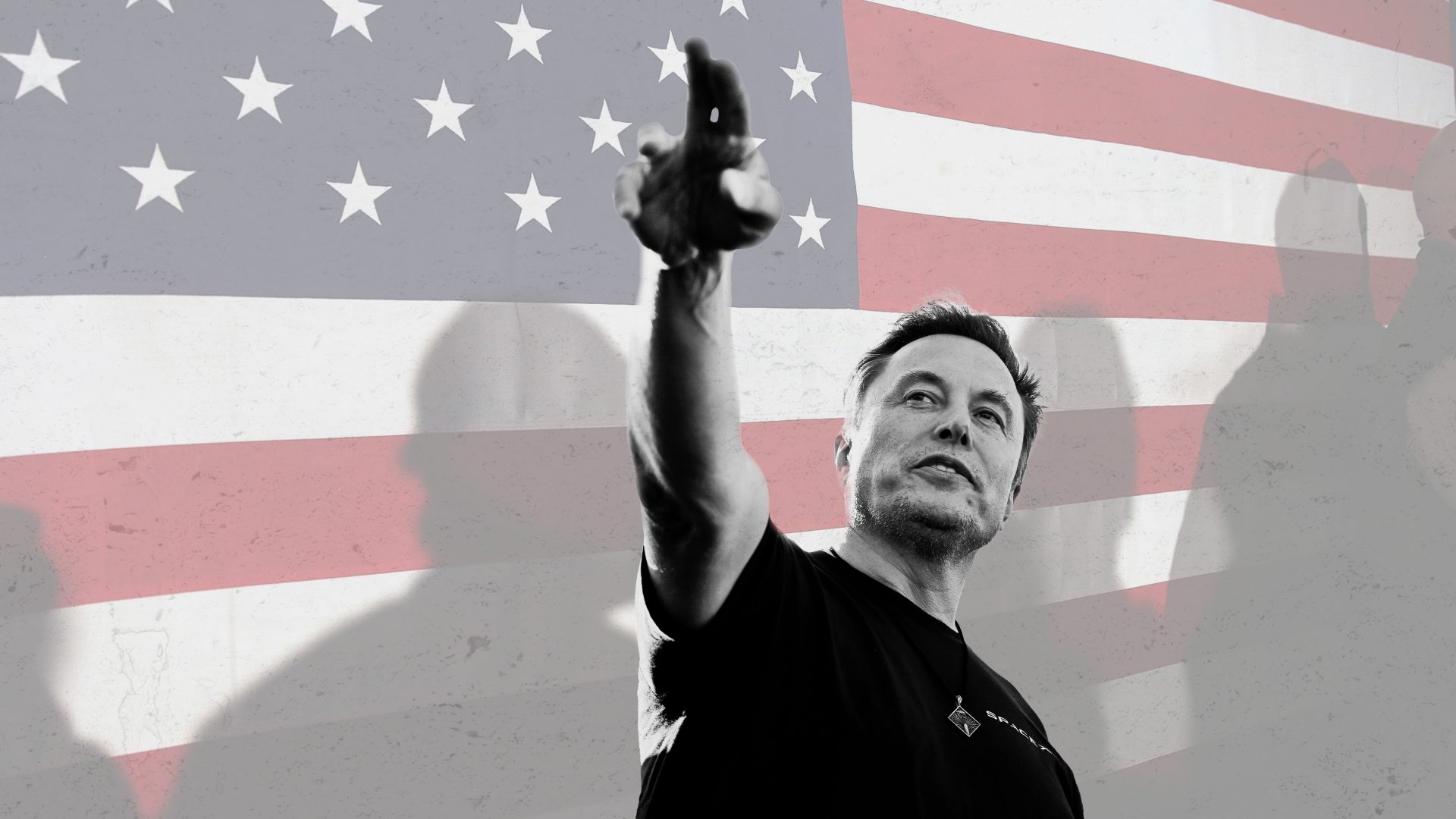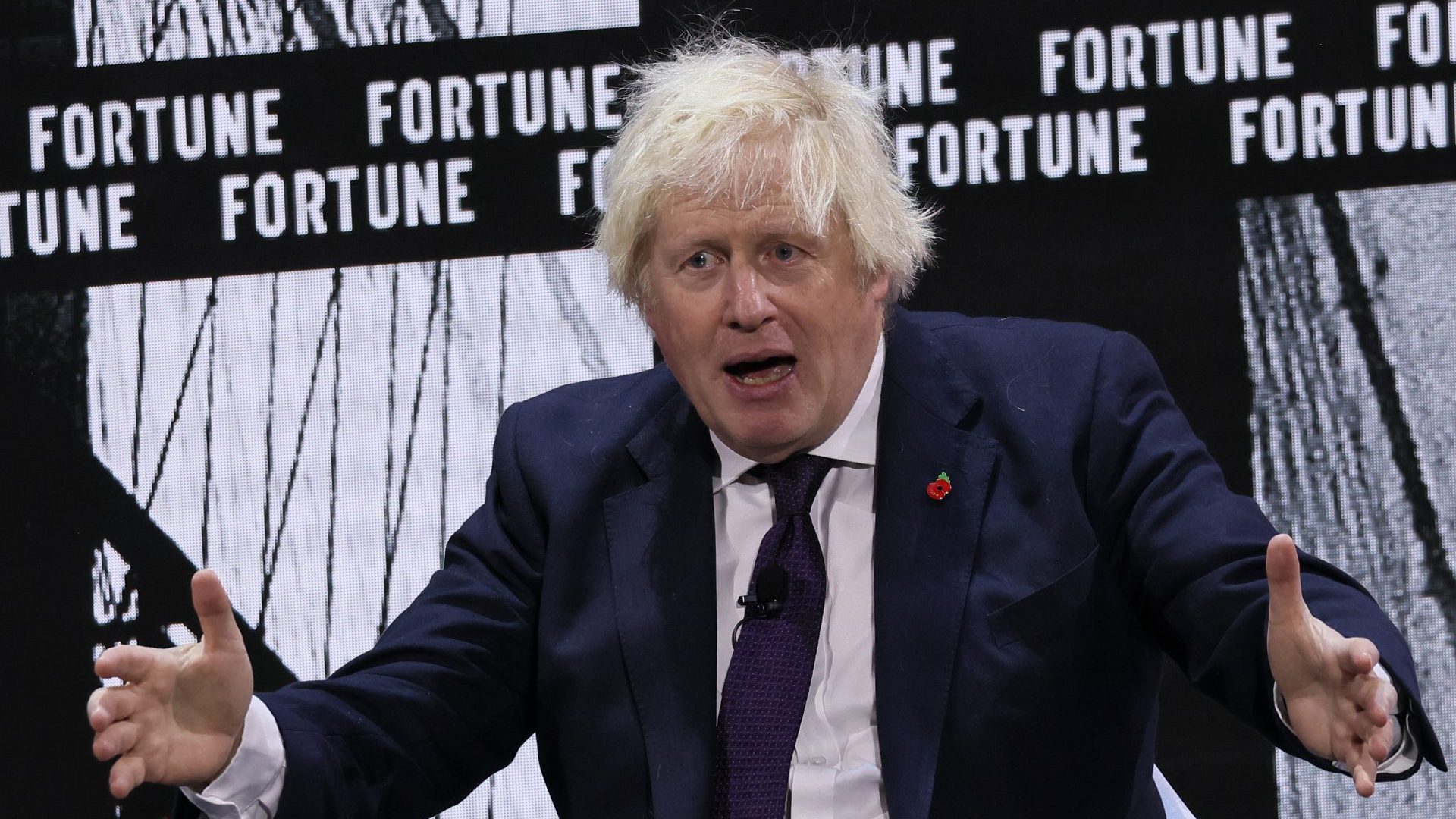Let’s face it: he’s having the time of his life.
At Jimmy Carter’s state funeral in Washington DC last Thursday, Donald Trump was chatting away with Barack Obama and smiling as if they were old friends trading banter. You would never have guessed that he had spent years spreading flagrant lies about Obama’s birthplace and religion.
Even the president-elect was struck by what he saw on screen afterwards. “I said, ‘Boy, they look like two people that like each other’. And we probably do,” Trump told NBC News. “We just got along. But I got along with just about everybody.”
That’s the Donald: the man who keeps alive the kindly spirit of The Get Along Gang.
Yes, he scowled his way through his sentencing for 34 felony counts in New York on Friday, the Supreme Court having rejected his appeal for a stay. “This has been a very terrible experience,” Trump said, as if complaining about shoddy customer service.
He got away with an unconditional discharge, as Justice Merchan concluded that this was “the only lawful sentence that permits entry of a judgment of conviction without encroaching upon the highest office in the land”. But when he raises his hand to swear the oath of office next Monday, he will do so as the first criminally sentenced US president.
This, like so much else, annoys him, and prompts him to rant at length. Trump has not had a personality transplant. He is still a blame machine, an unrelenting engine of lies, bigotry and vindictiveness.
But there is more shtick, more knockabout, more grinning than before. As he put it at Mar-a-Lago on January 7: “We’re going to have a lot of fun making America great again and it’s going to happen I think very, very quickly”.
Fun? To the eyes of European liberals (and a great many Americans), the horrors of the Los Angeles fires are not only a terrible human tragedy but also a harrowing symbol of the republic’s imminent plunge into the MAGA inferno. And so, in time, they may prove to be.
But be warned: the initial chapters of Trump’s second presidency will be widely, fuzzily welcomed as “Morning in America”; a fresh start, a moment of national regeneration. In his own words: “We’re approaching the dawn of America’s golden age. It’s going to be a golden age for America”. It’s Year Zero, folks.
This makes no sense at all if you approach the matter rationally, and with due regard to the overwhelming body of evidence that he is a deceitful agent of chaos and pathological narcissist.
What Trump grasps, however, is that, especially in the hypermodern world of post-truth politics and Big Tech systematically untroubled by falsehood, legend will always beat history. Exhilarating, consoling or retributive emotions will eclipse a litany of complex, awkward and nuanced facts.
The president-elect is also a beneficiary of our species-wide attention deficit disorder (in 2018, the average human attention span was found to have fallen from 12 seconds in 2000 to only eight seconds – less than the nine managed by goldfish). It is only four years since the US Capitol was stormed by a mob, whipped up by Trump’s fiery rhetoric and determined to hang Mike Pence and Nancy Pelosi. At the time, it was assumed around the world that the disgraced president was politically finished and probably headed for a cell in a supermax penitentiary.
Yet what Trump intuited was that, in the 2020s, even the memory of an insurrection could be massaged into something different. Not only has he evaded prosecution. He has reframed January 6, quite mendaciously, as a legitimate protest, supposedly infiltrated by the FBI and (he now claims) Hezbollah, that led to hundreds of MAGA supporters being unfairly convicted.
Indifferent, it would appear, to the 174 police officers who were injured and the four who died in the aftermath of the uprising, he has repeatedly promised “major pardons” of the “J6 hostages”.
Outrageous, for sure. But never forget that Kamala Harris ran as a defender of democracy and champion of electoral integrity – and was comprehensively defeated. Bear in mind, too, that the report of the 9/11 Commission was a bestseller for months; whereas the findings of the January 6 congressional inquiry were a publishing dud.
He who controls the past controls the future – and controlling the past is getting easier and easier. To move from George Orwell to Andy Warhol: “Sometimes, people let the same problem make them miserable for years when they could just say, so what”. Trump embodies that nihilistic aphorism.
Furthermore: do not expect the second term to be a straightforward continuation of the first. As has been widely chronicled, he was as amazed as anyone by his own victory in 2016, and quite uncertain how to proceed. When Raheem Kassam, former chief adviser to Nigel Farage, called on the president-elect to congratulate him, Trump said: “Is this a big deal?”
Having failed to win the popular vote and assisted to an unknowable extent by Russian electoral interference, he was treated as an impostor, his victory illegitimate, his qualification for the job non-existent. Around him he assembled an ever-changing gang of advisers, many of whom he quickly fired for daring to question his judgment or orders. With good reason, his court was nicknamed “the island of misfit toys”.
This time round, he knows which levers to pull and whom to appoint. As he puts it, using the first-person plural that has become his trademark: “We’re going to do an even better job because now we have a tremendous amount of experience. We have people that I can rely on”.
Not all of his controversial nominees – Robert F Kennedy, Tulsi Gabbard, Pete Hegseth, Kash Patel – may get through the senate confirmation process. But enough of them will. It is instructive that John Thune, the new senate majority leader, has been so positive about Patel’s prospective appointment as director of the FBI.
This is a nominee, after all, who is quite open about his ambition to turn the bureau into an instrument of Trump’s political whim, and of MAGA vengeance; who included in his book Government Gangsters (2023) an explicit list of “Deep State” targets and “corrupt actors of the first order”. Yet, in an interview with NBC’s Meet the Press on January 5, the supposedly independent-minded Thune praised Patel for grasping that the FBI “is in need of reform and needs a good makeover”. He added that the Senate would “get the president his people as quickly as possible in the key positions where he wants them”.
There will be speed bumps, of course. The Republican majority in both houses is wafer-thin and Trump will not always get his way. But this will be nothing like 2017. This time, former enemies and new friends are queuing up to kiss the ring.
The legacy media and “Never Trump” movement are still shell-shocked by the election result. Four years ago, there were rallies and marches in cities all over America. This time round, the street resistance (so far) has been muted.
As Peter Hyman argues, Trump’s second presidency requires us to consider everything afresh; to test every assumption about politics and progress. Take, for instance, his new expansionist campaign: to annex Greenland and Panama; make Canada the 51st state; and change the name of the Gulf of Mexico to the “Gulf of America” (“what a beautiful name”).
In general, the foreign policy commentariat has dismissed all this as “trolling”. Next week, they, and thousands of politicians and corporate titans, will head to the Swiss town of Davos for the annual summit of the World Economic Forum to discuss “Collaboration for the Intelligent Age” (an especially banal theme even by the exacting standards of that gathering).
In the conference hall and at their parties, they will convince one another that, even as the world burns, Trump returns and the far right surges, it will all be fine. And, for billionaires with private jets and pre-paid “apocalypse survival condos” deep underground, it may well be.
The rest of us do not have the luxury of assuming that, when Trump says something at odds with our liberal worldview, he is simply “trolling” his opponents. His present fixation with a Greater America, occupying new territories (with military force or by economic pressure if necessary), is both eccentric to the point of derangement, and precisely what many Americans want to hear right now.
During the first quarter of this century, they have grown weary of the “Pax Americana”; of “forever wars” in Afghanistan and Iraq; of subsidising the conflict in Ukraine to the tune of $175bn. Trump’s implicit question to them is: instead of wasting blood and treasure on places we’ll never visit, why don’t we invest locally? He is still a real estate developer, but with nukes.
Again, this has been over-intellectualised by many as a “new Monroe doctrine”: a reference to the foreign policy principle established by president James Monroe in 1823 that “we should consider any attempt [on the part of foreign powers] to extend their system to any portion of this hemisphere as dangerous to our peace and safety”.
But I think Trump’s rhetoric is mythic rather than geopolitical. He is appealing to the deep-seated American belief in “manifest destiny”; the ancestral pioneering spirit that is tied to a reverence for the land and its acquisition by the true chosen people.
It is this spirit that accounts for the blockbuster success – mysterious to the New York Times – of Taylor Sheridan’s show Yellowstone and its expanding universe of spin-offs on Paramount+. As Kevin Costner’s character, the Montana rancher John Dutton III, roars at a group of tourists: “This is America. We don’t share land here”.
Whether or not Trump acquires Greenland, Panama or Canada in the next four years, he is already speaking to millions of Americans in a language that they thought had been deep-sixed as political nuclear waste. He is drawing upon the folklore of national exceptionalism, of westward conquest, of the red-state frontier rather than the liberal coasts. You do not have to like this legend to acknowledge its resonance.
America is a profoundly self-conscious nation – not least because it has been the world’s dominant power for much of the past century, the lynchpin of the global rules-based order, rivalled first by the Soviet Union and now by China. What Trump is saying is: new rules, our rules.
In his telling, Nato is a protection racket rather than a military alliance underpinning the international rule of law. The other 31 members must pay up if they want the US to defend them (“That’s a lovely mountain range you’ve got there, Lithuania. Shame if it got invaded”).
Tariff is “the most beautiful word in the dictionary” because barriers to foreign trade – in Trump’s view – protect American jobs. Whether voters will agree with this dubious economic proposition when their iPhones cost $5,000 is a different matter. But, for now, the president-elect commands the stage.
In an article for the Financial Times last week, Peter Thiel, the pro-MAGA tech tycoon and one-time mentor to Elon Musk, wrote that an ancien régime was dying: “2016 shook their historicist faith in the arc of the moral universe but by 2020 they hoped to write Trump off as an aberration. In retrospect, 2020 was the aberration”.
I think Thiel is right, to the extent that what Joe Biden and Harris represented is now clearly in the rear-view mirror. In America, as elsewhere, progressives must think afresh, from first principles, as they plan their strategy for the second quarter of the 21st century.
Harris was absolutely right too when she declared that “we’re not going back”. The twist was that she herself, like her boss, was judged by American voters to embody the past.
We shall now see what that future looks like, as a twice-impeached, insurrectionist, convicted felon assumes the most powerful office in the world once more, and bends reality to his cruel will.




